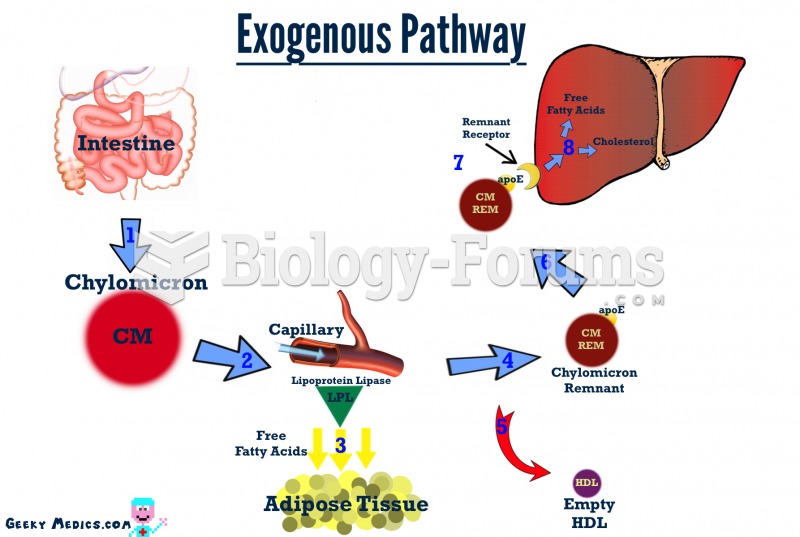|
|
|
According to the FDA, adverse drug events harmed or killed approximately 1,200,000 people in the United States in the year 2015.
The ratio of hydrogen atoms to oxygen in water (H2O) is 2:1.
As many as 28% of hospitalized patients requiring mechanical ventilators to help them breathe (for more than 48 hours) will develop ventilator-associated pneumonia. Current therapy involves intravenous antibiotics, but new antibiotics that can be inhaled (and more directly treat the infection) are being developed.
About 80% of major fungal systemic infections are due to Candida albicans. Another form, Candida peritonitis, occurs most often in postoperative patients. A rare disease, Candida meningitis, may follow leukemia, kidney transplant, other immunosuppressed factors, or when suffering from Candida septicemia.
Alzheimer's disease affects only about 10% of people older than 65 years of age. Most forms of decreased mental function and dementia are caused by disuse (letting the mind get lazy).
 Step 1 is to verify the customer concern or problem. If the problem cannot be verified, then the ...
Step 1 is to verify the customer concern or problem. If the problem cannot be verified, then the ...
 How Mendel’s theory accounts for the results of his experiment on the inheritance of seed color in ...
How Mendel’s theory accounts for the results of his experiment on the inheritance of seed color in ...





